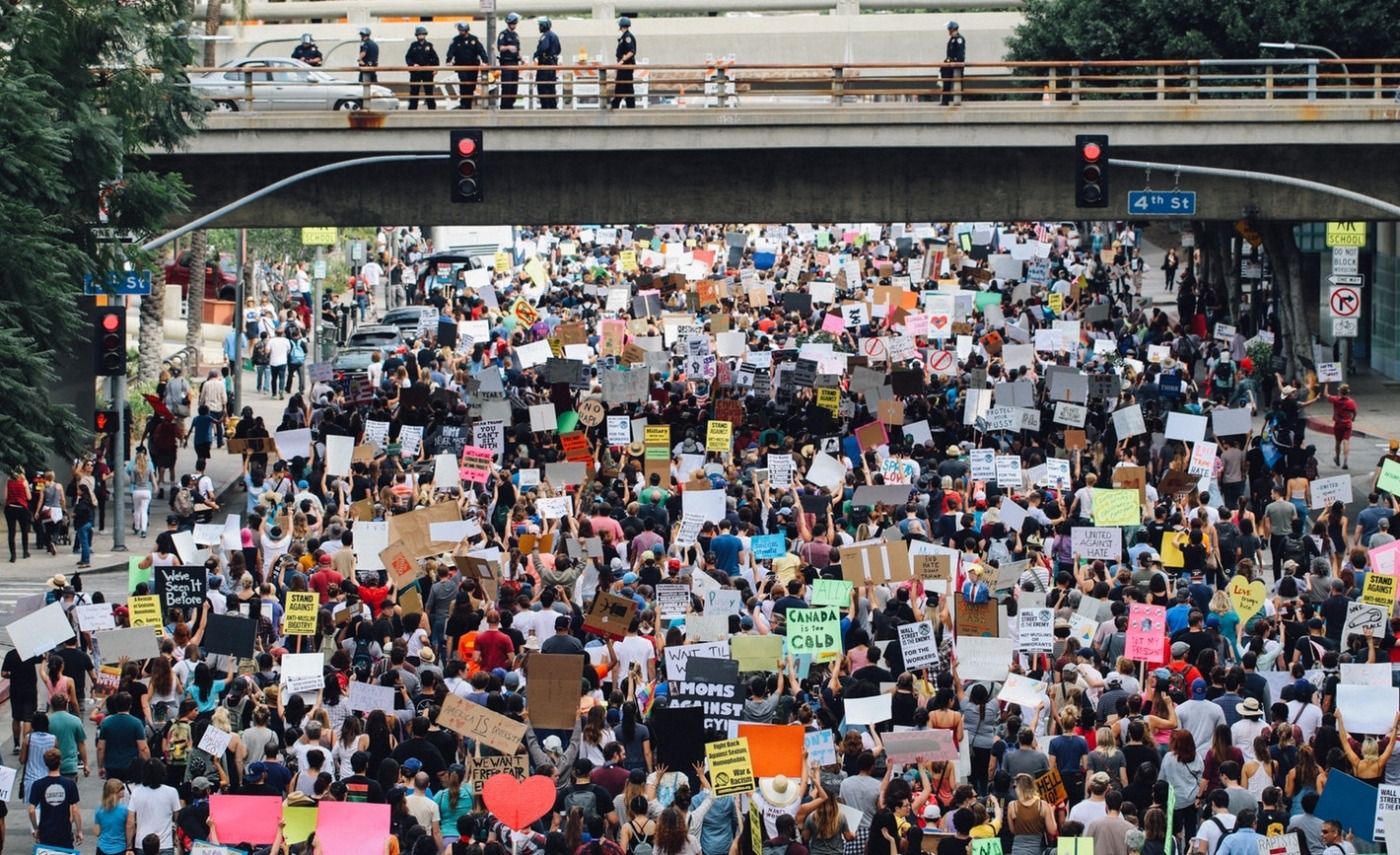Protest is a lot better than mundane silence
London, 20 October: 700,000 people, each giving 4 hours. Is the government any closer to changing its Brexit policy? Is Parliament going to be less divided? Will Theresa May waltz into her office one day and croak, “Okay, let’s have another vote”? The answer (sadly) is that this protest probably won’t change anything at all. On just one day in autumn, it seems that at least 3 million hours were wasted.
“But what about the UK’s LGBTQ laws?” you may ask. They certainly didn’t stay the same. Alternatively, consider the case of Gaddafi in 2011: one day Libya’s longest-reigning dictator, the next shot and killed by his own people. But while not always successful (the 2003 Iraq protests being a prime example), protests should not be measured simply by their effect on government policy. Indeed, they actually serve a far deeper purpose. Along with providing a vital platform for public opinion, protests shake the political class into attention and give our leaders pause for thought. Although New Labour didn’t turn around the tanks, the 2003 protests no doubt gave Tony Blair some real sleepless nights.
Nowadays, however, protests sound like a bit of an antiquated concept. With the mass popularity of social media and hasthtag activism, it seems that there’s just no need to go on the march. At the same time, though, social media activism is not always a trusty resource. Amidst a sea of bots and dodgy Kremlin trolls, It has become nearly impossible to tell who’s honest or even human on our newsfeeds anymore. There have been trends run entirely by trolls and we’ve been none the wiser. Meanwhile, even when these trends are run by honest humans, they don’t seem doesn’t seem to have anywhere near the same effect offline as a good old-fashioned protest.
Perhaps more than any group, students are the fuel that drive these protests
As a case in point, just look at the protest in London. 700,000 people descending on the capital and grinding life to a halt for four hours is no mean feat. And while it may not force a change in policy, the march was near the top of the list for hacks and politicos all weekend – something that Twitter has rarely achieved.
Meanwhile, the media has become overrun by political agendas and sensationalism. Rather than being the entity that challenges the government at every turn, the media has been swallowed up by commercialism and profits. Far from being the people’s mouthpiece, the media now puts words into the people’s mouths. It shoves opinions up people’s noses. It misrepresents them. It’s through raising our voices in protest that we can reorient the media to real issues.
If we believe something is wrong, we must make it right, or forever hold our silence
Perhaps more than any group, students are the fuel that drive these protests. For decades now, we have been the group to fight for causes simply because we believe in them. More than ever, the status quo needs challenging and the establishment has questions to answer. And this doesn’t just go for Brexit – it applies to everything and everyone. If we believe something is wrong, we must make it right, or forever hold our silence.
We are now heading for a cliff in a car no one is willing to drive. But if we resign to fate, fate will take place. In an age dominated by hashtags and breaking news, now is the time to use our rights – to speak, to assemble and to question – and let our real voices be heard. Democracy is a two-way bargain: either we protest, or our leaders get comfortable.

Comments
Comments are closed here.